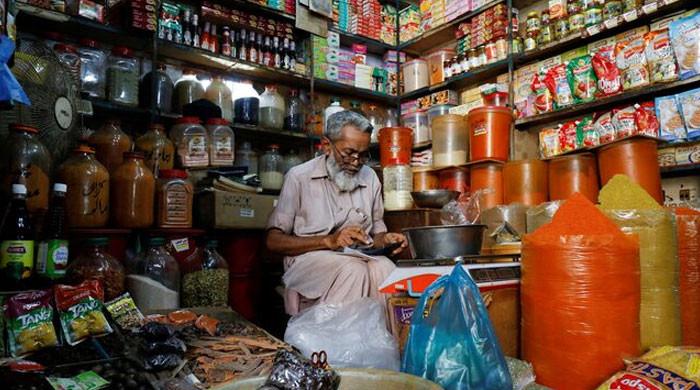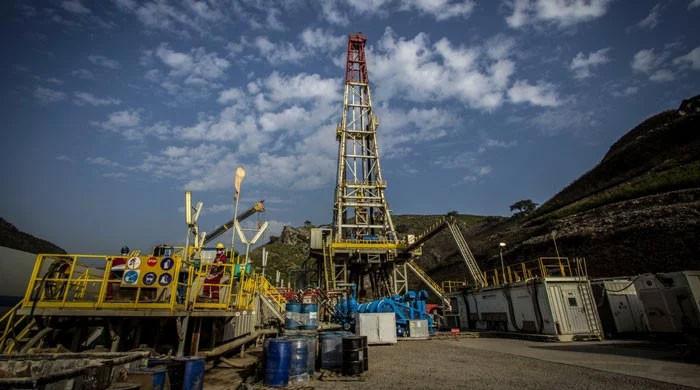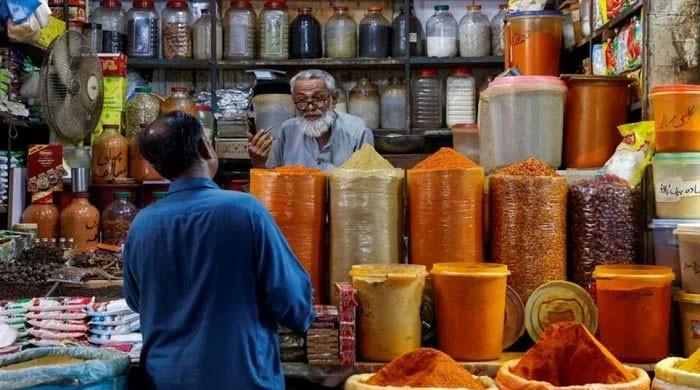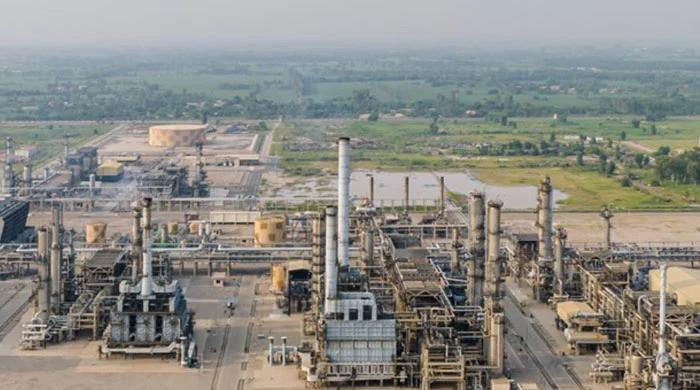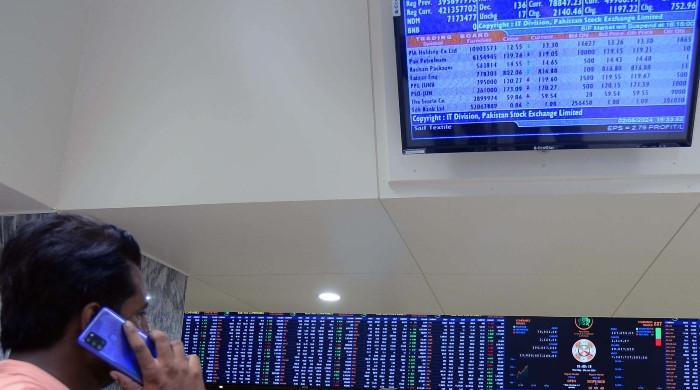What led to PSX's historic surge? Experts weigh in
KSE-100 Index surges past 100,000 points, driven by economic reforms and investor optimism
November 28, 2024
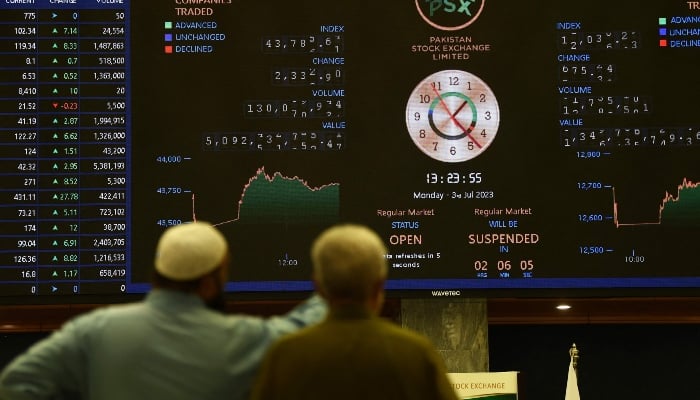
Despite political noise and economic worries making headlines every other day, the Pakistan Stock Exchange (PSX) has beaten all previous records and hit a historic high of more than 100,000 points on Thursday.
KSE-100 Index, the benchmark of PSX, moved up by 1077.25 points or 1.09% to surge to 100,346.50 points during the intra-day trade, with expectations of a further rise.
Market experts credited the historic achievement to several factors, particularly the government's unwavering commitment to implementing reforms.
The KSE-100 Index's historic milestone reflects a 60% year-to-date gain driven by a mix of 47% capital gains and 13% dividend yield.
Key contributing sectors include commercial banks, fertilisers, and oil and gas exploration, while top stocks like Fauji Fertilizer and United Bank Ltd played a pivotal role.
To uncover additional reasons, we consulted analysts to gain insights into the factors driving the market to this historic milestone.
'Rating upgrades'
Economist Khurram Schehzad said that policy efforts to turn fiscal and external accounts into surpluses and decline in the cost of doing business contributed to boosting investor sentiment.
Schehzad, who is also adviser to Finance Minister Mohammad Aurangzeb on economic financial reforms, said the decline in the cost of doing business was due to a marked reduction in the policy interest rate, rupee stability, and successful IMF's SBA followed by a larger and longer IMF programme.
The rating upgrades and a positive outlook of the economy by Moody's are also among some of the reasons for equities to rise, the adviser added.
'Consistency in IMF programme'
Samiullah Tariq, the head of research at Pak-Kuwait Investment Company, told Geo.tv that a fall in yields and lower inflation expectations are also driving the market.
The analyst noted that a key factor driving the market's upward momentum was the government's consistent adherence to the International Monetary Fund's (IMF) programme.
Tariq further added that expectations of increased mutual fund investments in equities contributed to the index's ascent.
'Easing political noise, rupee stability'
Arif Habib Corp's Ahsan Mehnti said that the stocks were at a new all-time high in early hours rally at PSX as investors speculated over expected major State Bank of Pakistan (SBP) rate cut after the government's T-Bill yields fell sharply by up to 70bps.
Easing political noise and rupee stability played a catalyst role in a new record in PSX, Mehnti added.
Political noise is a major factor that affects the PSX. The stocks had retreated two days back due to political instability, with the market suffering an over 3,500-point crash after PTI's march on Islamabad turned violent.
However, they bounced back to surge by more than 4,600 points and close at 99,269.25 on Wednesday, soon after the party had called off its protest following a government crackdown on protesters.
‘Resilience amid uncertainty’
Muhammad Sohail, CEO of Topline Securities, reflected on the PSX’s resilience: "Seventeen months ago, when Pakistan was being called a banana republic on the verge of default, the market delivered a 150% return.
This is an unprecedented example in the history of Pakistan and global capital markets where a country on the verge of default has recovered so strongly."
He added that Pakistan's stock market has consistently delivered a 20% annual return over the past 25 years, highlighting its potential for sustained growth.
Driving factors behind the rally
Arif Habib, a leading market expert, attributed the surge to economic improvements, noting: "The stock market's confidence has increased due to lower interest rates, rising exports, and growing foreign exchange reserves."
He acknowledged the persistent challenge of political turbulence but emphasised its limited impact: "Political instability has always existed in Pakistan."
Habib added that for sustainable growth, the government needs to strategise on how to increase its revenue.
'Liquidity driving the market'
One of the most significant factors behind this rally is improved liquidity, as highlighted by Sana Tawfik, Head of Research at Arif Habib Limited.
"The liquidity factor stands out as the most significant driver of the market. When interest rates were at 22%, fixed-income assets like bonds were the most attractive asset class for investors. However, with rates declining, we are now seeing a shift of funds toward equities, which has improved market liquidity."
This shift, coupled with foreign inflows and a stable rupee, has bolstered investor confidence, enabling the market to soar to new heights.




